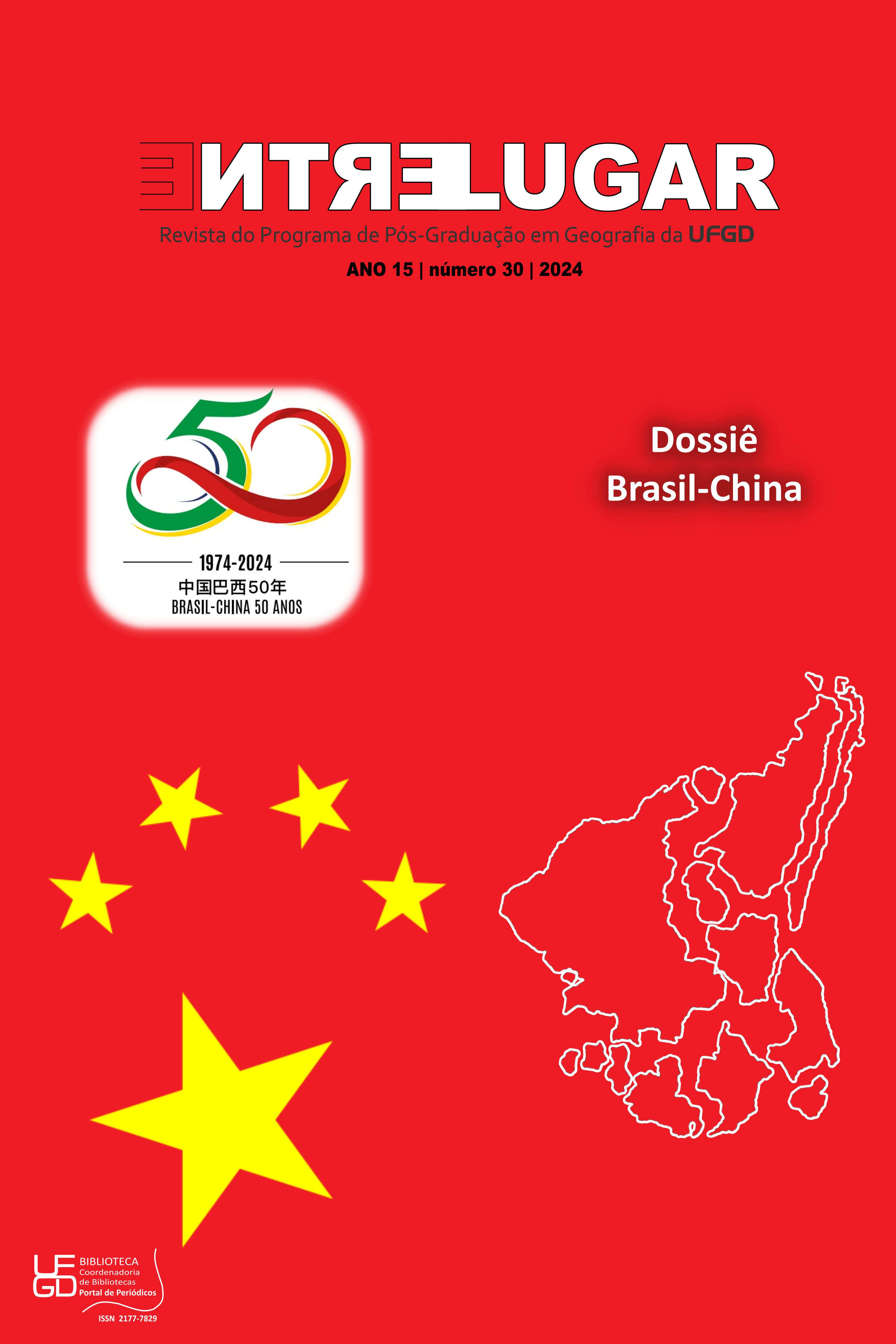Analysis of China and Brasil’s roles and strategies in economic cooperation under sino-american competition
DOI:
https://doi.org/10.30612/rel.v15i30.18799Keywords:
Sino-American competition. China-Brazil economic cooperation. Roles. Case study. Belt and Road initiative.Abstract
In the context of intensifying Sino-American competition, this paper analyzes the roles and strategies of China and Brazil in their economic cooperation. Amid a turbulent global economic environment, China has redefined its strategic approach to Latin America, with Brazil becoming a pivotal partner in China's "Belt and Road" initiative. The paper explores the economic, political, and cultural dimensions of China-Brazil relations, highlighting key cooperation areas such as infrastructure, new energy, digital technology, agriculture, and aerospace. It also examines Brazil's strategic balancing act between China and the United States, emphasizing Brazil's efforts to maintain diplomatic equilibrium while enhancing its economic ties with China. Through a detailed role theory analysis, the paper underscores the significance of China and Brazil's partnership in promoting global economic stability and development. This comprehensive study provides valuable insights into the dynamics of China-Brazil relations and their broader implications for international relations and global economic governance.
Downloads
References
ALLISON, G. The new spheres of influence: Sharing the globe with other great powers. Foreign Affairs, v.99, n.4, p.30-40, 2020.
UOL. FMI prevê que Brasil deve se tornar a nona maior economia do mundo em 2023. out., 2023. Disponível em: https://economia.uol.com.br/noticias/redacao/2023/10/16/fmi-preve-que-brasil-tera-a-9-maior-economia-do-mundo-ainda-em-2023.htm#:~:text=FMI%20prevê%20que%20Brasil%20deve,economia%20do%20mundo%20em%202023&text=O%20Brasil%20deve%20voltar%20ao,passado%2C%20ficou%20na%2011ª%20posição.
AZPURU, D. Is U.S. influence dwindling in Latin America? Citizens’ perspectives. The Latin Americanist, v.60, n.3, p. 345-373, 2016. DOI: https://doi.org/10.1111/tla.12092
CHINA-CELAC FORUM. Declaration of the second ministerial meeting of the China-CELAC Forum. feb, 2018. Disponível em: http://www.chinacelacforum.org/zywj/201802/t20180203_6285032.htm.
CEPAL. O Investimento Estrangeiro Direto na América Latina e no Caribe 2023: Resumo executivo (LC/PUB.2023/10). Santiago, Chile, 2023. Disponível em: https://repositorio.cepal.org/items/311f0b07-0e7c-435e-a8d6-7eca4805553e.
HE, S. China's strategy in Latin America in the new era and its influencing factors. Latin American Studies, v.41, n.6, 2019.
JIANG, Y.; XU, P. Opportunities and challenges in deepening China-Latin America monetary and financial cooperation under "de-dollarization." Northeast Asia Economic Research, v.8, n.2, p. 91-106, 2024.
LEITE, I. C.; POMEROY, M.; SUYAMA, B. Brazilian South-South development cooperation: The case of the Ministry of Social Development in Africa. Journal of International Development, v.27, n.8, p. 1446-1461, 2015. DOI: https://doi.org/10.1002/jid.3191
MUÑOZ, H. The dominant themes in the study of Latin America's foreign relations. World Affairs, v.150, n.2, pp. 87-95, 1987.
NICHOLLS, D. H. (2019). All hegemons are not the same: The role(s) of relational structures and modes of control. International Studies Review, v.21, n.1, p.121-145, 2019.
MONTEIRO, R. Investimento estrangeiro no Brasil tem queda de US$ 126 bilhões no primeiro ano do governo Lula. Jornal O Globo, fev., 2024. Disponível em: https://oglobo.globo.com/economia/noticia/2024/02/05/investimento-estrangeiro-no-brasil-tem-queda-de-us-126-bilhoes-no-primeiro-ano-do-governo-lula.ghtml.
UNCTAD. World investment report 2023. Geneva: United Nations Publications. 2023. Disponível em:http://www.cciip.org.cn/upload/files/2023/8/f9cb0c4972ecb2dd.pdf.
WALKER, S. G.; MALICI, A.; SCHAFER, M. (Orgs.). Rethinking foreign policy analysis: States, leaders, and the microfoundations of behavioral international relations. Routledge, 2011. DOI: https://doi.org/10.4324/9780203834862
WANG, F.; CHEN, L. The US intervention in China-Latin America economic cooperation: Motivations, methods, and impacts. International Economic Cooperation, v.4, 2023. 78-90+94. DOI: 10.20090/j.cnki.gjjh.2023.4.6.
WEHNER, L. E.; THIES, C. G. Leader influence in role selection choices: Fulfilling role theory's potential for foreign policy analysis. International Studies Review, 2021. Disponível em: https://researchportal.bath.ac.uk/en/publications/leader-influence-in-role-selection-choices-fulfilling-role-theory. DOI: https://doi.org/10.1093/isr/viab014
WEI, L.; LI, T. Role theory and contemporary international relations research agenda. Foreign Affairs Review, v.40, n.6, 2023.
ZHOU, Z. National identity, collective identity, and incentive mechanisms: Core motivations for Brazil's participation in BRICS. Latin American Studies, v.44, n.5, 2022.
Downloads
Published
How to Cite
Issue
Section
License
Autores que publicam nesta revista concordam com os seguintes termos:
- Autores mantém os direitos autorais e concedem à revista o direito de primeira publicação, com o trabalho simultaneamente licenciado sob a Creative Commons Atribuição-NãoComercial-CompartilhaIgual 3.0 Brasil que permitindo o compartilhamento do trabalho com reconhecimento da autoria do trabalho e publicação inicial nesta revista.
- Autores têm autorização para assumir contratos adicionais separadamente, para distribuição não-exclusiva da versão do trabalho publicada nesta revista (ex.: publicar em repositório institucional ou como capítulo de livro), com reconhecimento de autoria e publicação inicial nesta revista.
- Autores têm permissão e são estimulados a publicar e distribuir seu trabalho online (ex.: em repositórios institucionais ou na sua página pessoal) a qualquer ponto antes ou durante o processo editorial, já que isso pode gerar alterações produtivas, bem como aumentar o impacto e a citação do trabalho publicado (Veja O Efeito do Acesso Livre).




